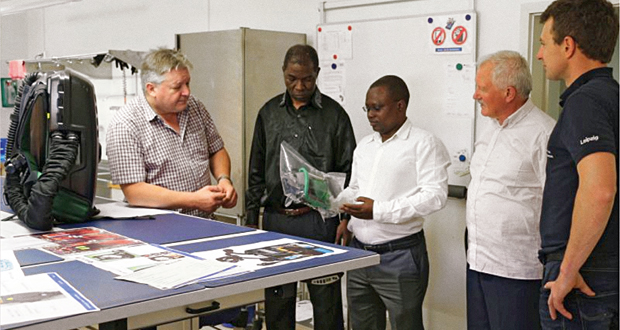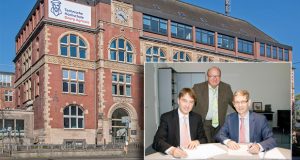In a speech given in the state parliament of Saxony on the proposal made by the Christian Democratic Union (CDU) and the Social Democratic Party (SPD) (“Saxony unearths its wealth – pursue the raw materials strategy”), the Minister for Economic Affairs, Martin Dulig, declared himself in favour of the continued development of the Saxon raw materials industry. “By setting out its raw materials strategy, the Free State of Saxony has already stated its commitment to making Saxony a raw materials site. Our aim is to continue reinforcing the recovery of raw materials in particular and to strengthen Saxony’s position in the raw materials industry,” the minister explained. “Saxony’s wealth is founded on centuries of continuous mining success. We understand that the recovery of raw materials is a vital contribution towards creating added value in the federal state.”
The Saxon raw materials strategy is regarded as a guideline on the best course of action to take for a forward-looking raw materials policy that is based on the principle of sustainability in the Free State of Saxony. An evaluation of the progress that has been made implementing the raw materials strategy, conducted by its stakeholders, showed that the guidelines and objectives of the Saxon raw materials policy were set out correctly and must now continue to be followed.
In his speech, Minister Dulig also took stock of what has been achieved so far with regard to the reappraisal and provision of quantitatively and qualitatively unique geological information about deposits as part of the ROHSA (Raw materials in Saxony) 3 project: “We have already made considerable progress. Since 2013, non-digital, largely unpublished documents from the archives have been continuously reviewed, scanned and recorded in a database. The first subproject in the Central Ore Mountains is almost complete. However, that is just 4 % of the surface of the Free State. It is therefore essential that we continue in this vein over the coming years.” Over the course of the project so far, around 2.6 million archive pages have been scanned, 200 ore boreholes have been digitised and approximately 70,000 geophysical and 240,000 geochemical data records have been stored in a database.
However, there is much more to the Saxon raw materials strategy than just ROHSA. In particular, the strategy aims to consolidate Saxon expertise in all areas of mining engineering. Saxon experts from businesses, consultancies, universities, institutes and administrations are in demand around the world. This level of international cooperation shows that Saxony is valued as a competent partner and Saxon expertise is highly sought after internationally.
Saxony is currently involved with a project on implementing a pilot programme set up by the Federal Ministry for Economic Cooperation and Development (BMZ) which aims to better exploit the expertise and experience of the federal states for the benefit of development policy. The project is increasing the effectiveness of German development cooperation, as well as developing the federal states’ international economic relations further. The collaborative project, which is jointly funded by Saxony and the BMZ, supports the Free State’s cooperation in the mining industry with its partner country, Mozambique. The main content of the project is an advanced training programme for mining safety of managers and coordinators run by the Ministry of Mining and Energy (MIREME) and the Mining Inspectorate General (IGREME) in Mozambique (Figure 1).
“Owing to the success we have already experienced, we shall be continuing the project over the coming years,” said Minister Dulig. “Offering general and advanced training for specialists in disciplines in the raw materials industry in particular is a traditional strength of the Saxon education system, especially in Freiberg. We therefore have to safeguard this system to train future specialists and guarantee a supply of specialists at all levels.”
Dulig’s speech also referred to the raw materials industry’s considerable contribution to creating added value in Germany. He added that this contribution is not possible without the acceptance of the raw materials industry in all spheres of society. “Which is why we all must advocate greater awareness of raw materials in all sections of society. The raw materials industry creates jobs and thereby social stability. The high technological standards in Germany guarantee that the raw materials industry in our country can be environmentally sound in its structure.” (SMWA/Si.)


